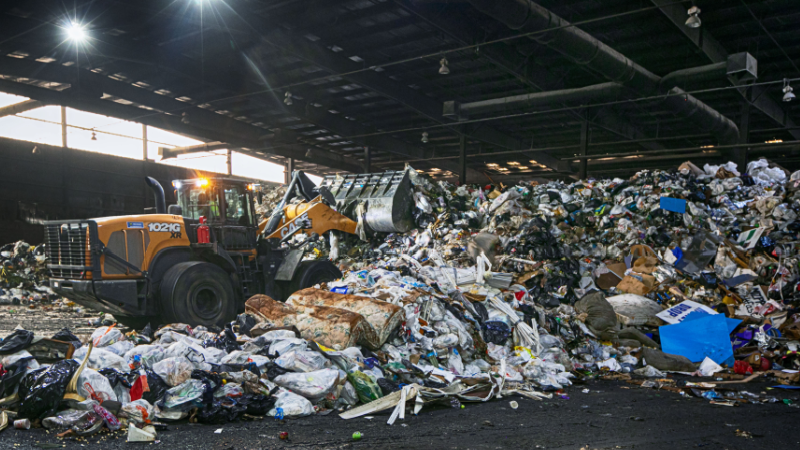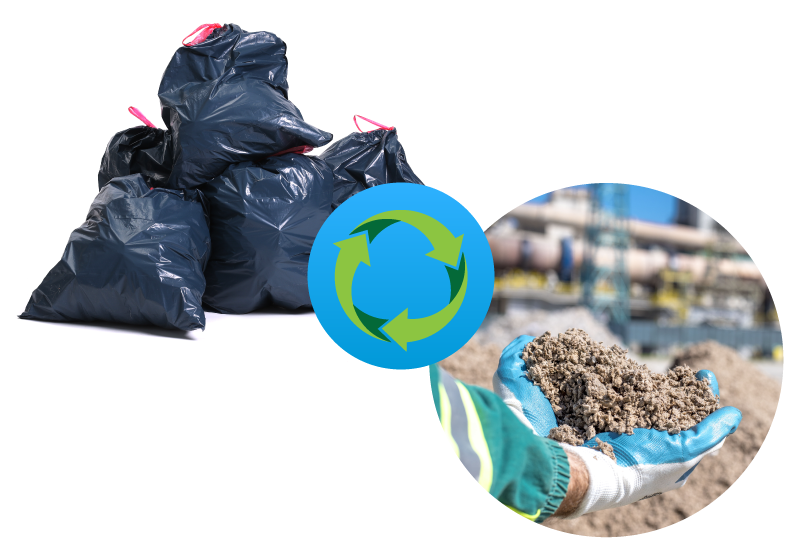Nov 01, 2022
Imagine a future where the energy we use is powered by the waste we create. At ACUA, we’re working to find a solution that will do just that. We’ve partnered on projects to turn the gas created from decaying waste into energy, and our next endeavor will be to implement technology that values the waste itself as a resource.
.png.aspx)
ACUA's Solid Waste Transfer Station located in Egg Harbor Township, NJ.
The Work We’re Doing
ACUA’s Research and Development team has been following and investigating emerging technologies since 2008. Over the years, we’ve visited various waste conversion facilities throughout the country and evaluated viable opportunities.
In 2013 and 2018, ACUA requested formal proposals for temporary pilot projects at its facility. At the time, the projects proposed were not practical for ACUA’s waste stream. Flash forward to 2022, and ACUA is gearing up to again request proposals for emerging technologies.
The continual developments in the industry, partnered with ACUA’s learned insights from many years of experience, the addition of RNG infrastructure at ACUA facilities, and the request for a full scale project has created an environment more inclined for success.
Why Alternative Technology?
The standard method of disposing waste in a landfill, while successful, is limited. It is limited by its physical capacity – a landfill can only hold so much – and its location – no one wants a new landfill built by them! For perspective, the ACUA landfill in Egg Harbor Township took more than nine years to approve and more than a decade to permit.
The increasing environmental importance of waste diversion also changes the landscape. Diverting as much waste as possible from the stream not only saves valuable landfill space but forces us to view each waste type as a potential resource. For example, the ACUA already has a large-scale composting facility that turns yard waste like leaves and tree parts into EcoSoil. Modern waste conversion technologies have the potential to make something new from construction debris or regular household trash.
The Challenges
There are challenges to overcome before implementing waste conversion technologies into the solid waste management process. First, the economics must make sense. If the new technology is not economically feasible, we cannot pursue it at the cost of ratepayers. The by-product of the technology must be valuable enough to cover the cost of processing.
ACUA must also secure proper approvals and permitting from proper authorities such as the New Jersey Department of Environmental Protection (NJDEP). Since the technologies are emerging, this process can sometimes be more challenging.

The Technologies
Three technologies are emerging and shaping the future of the waste conversion industry. The processes have the capability to produce various types of energy including heat production, electricity, refuse-derived fuel (RDF), renewable natural gas, hydrogen, synthetic aviation fuel (SAF), bio-diesel and more. In addition to energy, today’s technologies have an increased focus on front-end processing that removes most of the material that was not properly recycled and processes it to produce additional recyclable by-products such as paper pulp, or recycled plastic.
Thermal Conversion
Thermal conversion involves using heat to convert waste and can be completed using plasma gasification or pyrolysis.
Plasma gasification is a process that combines high temperature with limited oxygen to produce syngas, a mixture of hydrogen and carbon monoxide. Pyrolysis combines high temperature with no oxygen to produce syngas or a refuse derived fuel.
Mechanical Biological Treatment
Mechanical biological treatment uses batch processing to remove recyclable elements from the waste stream while breaking down the biodegradable component of waste through a process similar to composting. This process typically creates a refused derived fuel (RDF) that is utilized off-site.
Mechanical Sorting with Beneficial Waste Stream
Some processes mechanically separate material into waste streams and process them individually, similar to a typical recycling plant. This method can simultaneously output recyclable products and fuel. One system currently operating in Oregon produces fiber pulp for paper products and another process under development in Michigan will potentially produce roofing underlayment for construction. The organic material sorted out of the process is then used to produce renewable natural gas via anerobic digestors.
The Future of Solid Waste Management in Atlantic County
ACUA has a proven track record for exploring and implementing alternative projects that not only work but are both environmentally and economically beneficial to our community (see wind power and compressed natural gas). We believe a waste conversion technology project is next within our reach.
Introducing this type of project to ACUA’s solid waste management process would decrease the amount of material leftover for landfilling (up to 80-90%) and reflect the increasingly important environmental need to treat waste as a resource.
ACUA expects to release a request for qualification in early 2023.